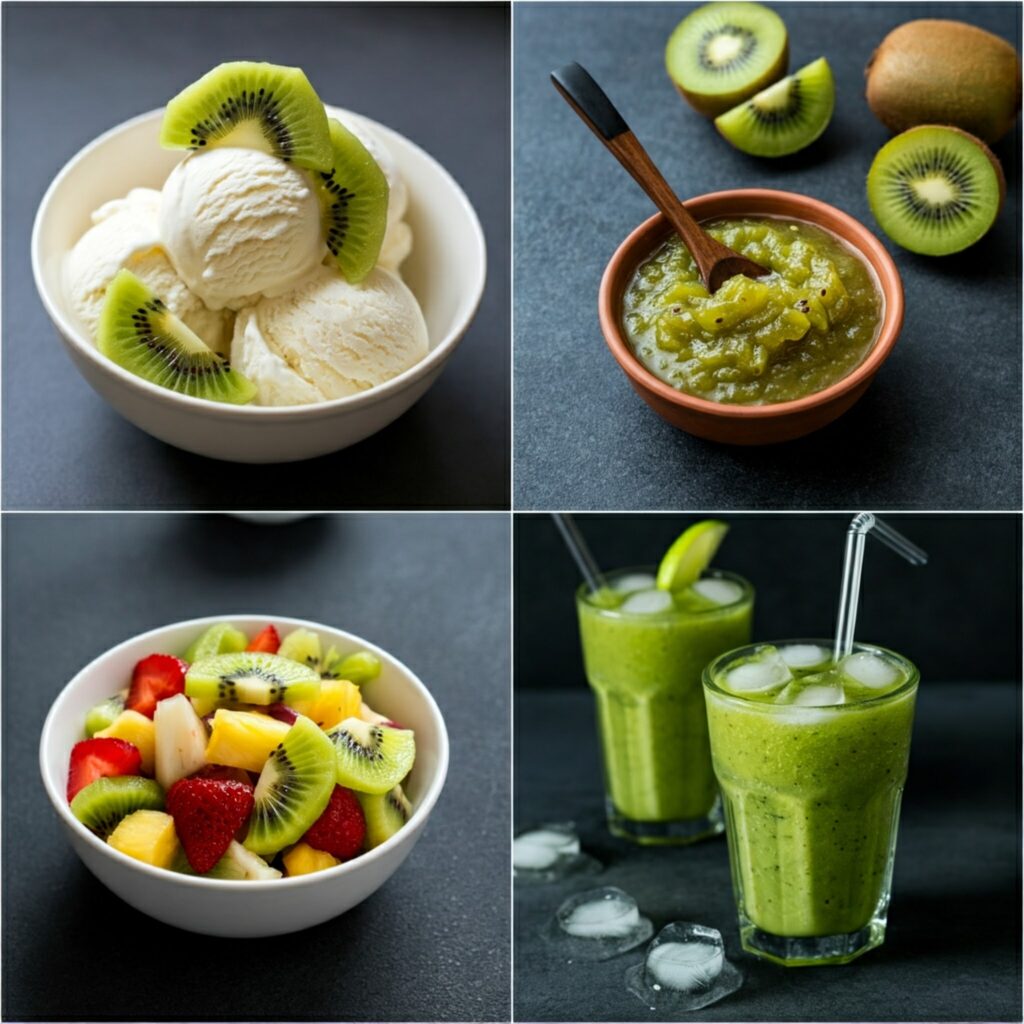Pregnancy is a unique journey filled with excitement, curiosity, and questions about what to eat. For young urban mothers in Pakistan balancing fast-paced lives with cultural traditions, choosing the right foods can feel overwhelming. Enter kiwi fruit in pregnancy—a nutrient-packed superfood that deserves a spot in your pregnancy diet.
Let’s explore its benefits, ways to include it in your meals, and address common myths surrounding this vibrant fruit.
Table of Contents
The Benefits of Eating Kiwi Fruit in Pregnancy
Kiwi fruit in pregnancy isn’t just delicious; it’s a nutritional marvel packed with essential vitamins and minerals to support a healthy pregnancy. Here’s why it stands out:
- Rich in Vitamin C: Kiwi is a fantastic source of Vitamin C, boosting immunity and aiding in the absorption of iron, a critical mineral during pregnancy.
- Folic Acid: This fruit is high in folic acid, essential for fetal development and preventing neural tube defects.
- Dietary Fiber: With its high fiber content, kiwi helps prevent constipation, a common concern during pregnancy.
- Low in Calories, High in Nutrients: Kiwi offers a perfect balance for those looking to maintain a healthy weight while meeting nutritional needs.
Here’s a quick nutritional breakdown of kiwi fruit (per 100g):
| Nutrient | Quantity | Benefits |
|---|---|---|
| Vitamin C | 92.7mg | Strengthens immunity and promotes iron absorption. |
| Folic Acid | 25mcg | Supports fetal brain and spinal cord development. |
| Fiber | 3g | Improves digestion and prevents constipation. |
| Potassium | 312mg | Regulates blood pressure and prevents cramps. |
| Vitamin K | 40.3mcg | Aids in blood clotting and bone health. |
How to Identify and Select Fresh Kiwi Fruit in Pakistan
Since kiwi fruit is not as widely available in Pakistan and tends to be on the expensive side, selecting high-quality fruit is essential to make the most of your purchase. Here are some tips:
- Look for Uniform Skin: A healthy kiwi should have smooth, unblemished skin without any bruises or cuts.
- Gently Press the Fruit: A ripe kiwi will yield slightly under gentle pressure. If it feels too hard, it may not be fully ripe; if too soft, it might be overripe.
- Check the Color: The skin should be brown and slightly fuzzy, while the flesh inside should appear vibrant green with tiny black seeds.
- Smell the Kiwi: A fresh kiwi will have a mild, fruity aroma. Avoid kiwis that smell overly sweet or fermented.
For cost-conscious moms, buying kiwi during peak season or looking for deals at local supermarkets or online grocers can help reduce the expense.

How to Include Kiwi Fruit in Pregnancy Diet
Kiwi is versatile and easy to incorporate into your meals. Here are some ideas:
- Morning Smoothie: Blend kiwi with yogurt, bananas, and spinach for a refreshing start to your day.
- Fruit Salad: Combine kiwi with seasonal fruits like apples, oranges, and pomegranates for a vibrant snack.
- Dessert Topping: Add sliced kiwi to pancakes or oatmeal for a naturally sweet touch.
- Kiwi Chutney: Create a tangy chutney with kiwi, mint, and green chilies to pair with snacks or meals.
Common Concerns About Eating Kiwi Fruit in Pregnancy
Is kiwi safe for everyone during pregnancy? Yes, kiwi is generally safe and highly beneficial. However, if you have a history of allergies to tropical fruits or latex, consult your doctor before consuming it.
Can eating too much kiwi cause acidity? Kiwi is slightly acidic but unlikely to cause issues when eaten in moderation. Pair it with yogurt or nuts to balance its acidity.
It is to be noted that those allergic to wheat, poppy seeds, hazelnuts, or figs may have a chance to develop an allergy to kiwi as well. If you experience any allergic reactions such as itching or swelling after eating kiwi, stop consumption immediately and consult a healthcare provider.
Addressing Myths About Kiwi Fruit in Pregnancy
Does kiwi have a ‘cooling effect’ on the body, and is it harmful? In South Asian cultures, certain foods are believed to have a “cooling” or “heating” effect. Kiwi is often considered a cooling fruit, but there is no scientific evidence to suggest it’s harmful during pregnancy. On the contrary, its hydrating and nutrient-rich properties make it an excellent choice for expecting mothers.
FAQs About Kiwi Fruit in Pregnancy
1. Can kiwi help with morning sickness? Yes! The Vitamin C and natural sugars in kiwi can help reduce nausea and keep energy levels stable.
2. Is it safe to eat kiwi seeds? Absolutely. Kiwi seeds are rich in fiber and nutrients and are perfectly safe to eat.
3. How many kiwis can I eat daily? 2–3 kiwis per day are ideal to enjoy the health benefits without overloading on natural sugars.
4. Can I eat kiwi if I have gestational diabetes? Kiwi has a low glycemic index, making it a good fruit choice for managing blood sugar levels. However, always consult your doctor for personalized advice.
5. What should I do if I can’t find fresh kiwi? If fresh kiwi is unavailable, frozen kiwi or canned kiwi (in natural juice, not syrup) can be good alternatives. They retain most of the nutrients and are often more budget-friendly.
Final Thoughts
Kiwi fruit in pregnancy is more than just a tangy treat; it’s a powerhouse of nutrients that can support a healthy pregnancy. Whether you enjoy it as a snack, in a smoothie, or as part of a meal, kiwi is a delicious way to boost your health and your baby’s development.
For moms in Pakistan, kiwi might be a splurge, but its benefits make it worth considering. Have you tried kiwi during pregnancy? Have you included kiwi in your pregnancy diet? Let us know your favorite way to enjoy this superfood, and share this post to inspire other expecting moms!
